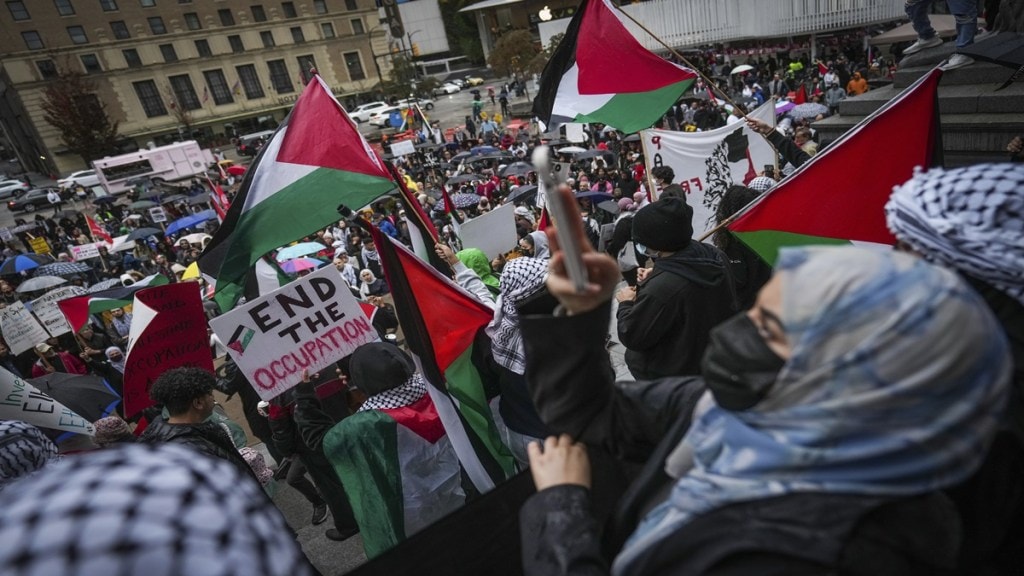Israel has fallen prey to one of the deadliest attacks in history and the death and destruction that has followed, has sent shockwaves across the world. Israel in retaliation has now escalated its attack on the Gaza strip. Their forces are engaged in combat to remove Gaza gunmen from southern Israeli areas. The death toll in Israel has allegedly surpassed 1000-mark, marking an unprecedented level of casualties not seen in decades. Meanwhile, over 400 people have lost their lives in Gaza. Palestinian militant factions have asserted that they are currently detaining more than 130 individuals from the Israeli side.
While both sides are embroiled in war, many are clueless about what led Hamas to launch an attack on Israel in the first place. To understand this, we first need to know the history of Hamas.
What is Hamas?
The term ‘Hamas’ is an acronym for ‘Harakat Al-Muqawama Al-Islamia’, which translates to Islamic Resistance Movement in Arabic. A CNN report states that much like other Palestinian factions and political parties, Hamas asserts that Israel is an occupying force and aims to liberate Palestinian territories. It does not recognize Israel as a legitimate state.
The report suggests that Hamas was founded in 1987 and is an Islamist organization with a military wing. It originated from a Sunni Islamist group established in Egypt in the late 1920s.
Hamas’s refusal to acknowledge Israel has led to its rejection of previous peace negotiations. Throughout the years, Hamas has claimed responsibility for numerous attacks on Israel and has been designated as a terrorist organization by the United States, the European Union, and Israel, the report said. Israel accuses its long-standing adversary, Iran, of providing support to Hamas.
Why did Hamas attack Israel?
Hamas launched a surprise attack on Israel’s Yom Kippur with an aim to bring an end to what it perceives as the “Israeli occupation.” A Hamas commander has stated that the attack was carried out as a defensive measure aimed at protecting Al-Aqsa mosque.
The Al-Aqsa compound holds immense significance in both Islam and Judaism, being regarded as one of the holiest sites. Known to Muslims as Al Haram Al Sharif (Noble Sanctuary) and to Jews as Temple Mount, it has served as a persistent source of tension in the Israel-Palestine conflict for many decades, CNN said in its report.
As per an arrangement established over a century ago, only Muslims are permitted to pray within the compound. Non-Muslim visitors are allowed to visit at specific times and are restricted to certain areas within the complex.
However, concerns have arisen within the Muslim community that the exclusive right to worship at this site is being eroded. There are apprehensions that both the holy sites themselves and the status quo are under threat due to the influence of a growing far-right Jewish movement and the policies of Israel’s far-right government.
The site has frequently witnessed clashes between Palestinian worshipers and Israeli forces, with the police conducting multiple raids on the compound in the past year, the report said.
Unraveling the complex history of Hamas and Israel
Tensions between Israel and the Palestinians have persisted since before 1948, and the conflict has resulted in a substantial loss of life. The armed conflicts involving Israel and Hamas date back to as early as the 1987 First Palestinian Intifada, also known as the uprising against Israel’s occupation of the Gaza Strip and the West Bank.
Israel gained control of Gaza from Egypt during the 1967 war but later withdrew in 2005. Subsequently, in 2007, following a brief civil war with Fatah, a rival Palestinian faction that forms the core of the Palestinian Authority, Hamas took control of Gaza. Since then, the territory, housing around 2 million Palestinians, has been subjected to a strict siege imposed by both Israel and Egypt, which continues to this day. Israel additionally maintains an air and naval blockade on Gaza, the report stated.
Prior to the recent attack on Saturday, the last conflict between Hamas and Israel occurred in 2021, which lasted 11 days and resulted in the loss of at least 250 lives in Gaza and 13 in Israel.

